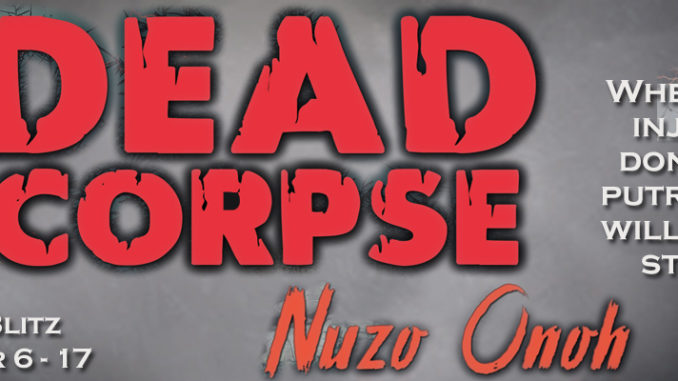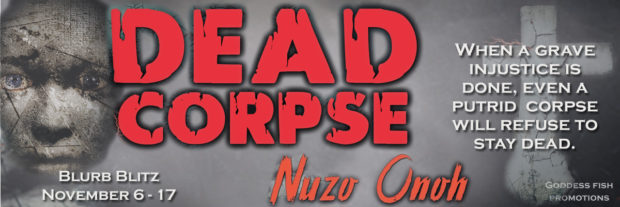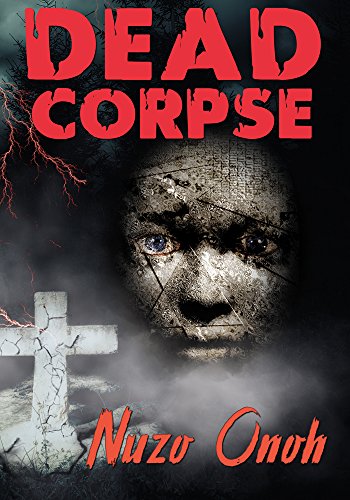

 Horror allows us to release our fears. It gives us power and the ability to understand our own failings. More importantly a good horror story rekindles the soul and gives faith and hope to the reader. Nuzo Onoh’s latest novel ‘Dead Corpse’ combines fear of powerful women with African folklore to tell the story of a family. The Nshi are a matriarchy that worships the earth goddess Ana. Xikora, in delivering her son into the world makes the reader immediately understand the family dynamic. Goddesses don’t play and when their rules are broken, they take away their protections. Xikora commits several acts which takes away the lives of many including her newborn son. Her selfishness causes her own daughter Qwa to go through several trials including the loss of her own child Aku. But as priestesses there is an understanding that their village cannot conceive, in that death is only a bridge to learning who you are meant to be in this world.
Horror allows us to release our fears. It gives us power and the ability to understand our own failings. More importantly a good horror story rekindles the soul and gives faith and hope to the reader. Nuzo Onoh’s latest novel ‘Dead Corpse’ combines fear of powerful women with African folklore to tell the story of a family. The Nshi are a matriarchy that worships the earth goddess Ana. Xikora, in delivering her son into the world makes the reader immediately understand the family dynamic. Goddesses don’t play and when their rules are broken, they take away their protections. Xikora commits several acts which takes away the lives of many including her newborn son. Her selfishness causes her own daughter Qwa to go through several trials including the loss of her own child Aku. But as priestesses there is an understanding that their village cannot conceive, in that death is only a bridge to learning who you are meant to be in this world.
For Xikora, she willfully spits at her faith by going against its precepts. The audience understands that her death is only a temporary relief for the villagers. Onoh creates a death for her that makes the reader holds its breath. You may find yourself leaning back so the minions of the death gods won’t reach out between the pages and grab you. But any well done horror is more than just a good scare. Grandmother, Xikora, Qwa, Aku are of the same family of women chosen to serve Ana in part because they are women and Albino. An albino is someone who has little to no skin pigment. They do not look Caucasian, rather they tend to have Black-African type features. And have had horrific acts committed to them. In ‘Dead Corpse’ there is a regality in their image. The creamy, clean skin with curly blonde hair stands out in a way that speaks of authority. They know and have seen things far beyond your realm of cognition. But the things these women are privy to, in some ways they have had to pay a price. Not being able to marry, in the novel tends to plague Qwa. Aku goes through incarnations of pain and trauma, but it is Xikora who ties this narrative together. She is the one you need to fear the most. Xikora forces you to grow, her anger and resentment towards the bindings that society has enclosed her in can be a commentary in regards to how marginalization breeds malevolence and destruction. Essentially, if we do not allow others to live, we all go down in the flames of their vengeance.
Overall, ‘Dead Corpse’ goes beyond its job of being a good scare. There’s a meta-narrative happening which makes this not only an informed read of another culture, but forces you to reflect on how you treat what is considered other.

Leave a Reply